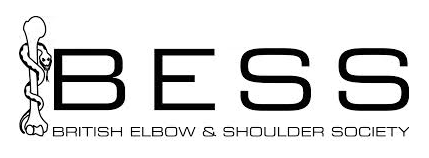Shoulder surgery is a significant medical procedure that requires careful preparation to ensure a successful outcome and smooth recovery. Whether you’re having a shoulder arthroscopy for shoulder instability, rotator cuff surgery, open fracture repair or shoulder joint replacement surgery, being well-prepared will alleviate stress and improve the overall experience. This guide will cover essential aspects of preparing for shoulder surgery, including pre-operative planning, understanding potential risks, and outlining the recovery process.
Types of Shoulder Surgery
There are several types of shoulder surgery, each targeting different issues within the shoulder joint. Common procedures include:
- Shoulder Arthroscopy: This is a minimally invasive procedure used to diagnose and treat various shoulder conditions, including rotator cuff tears, labral tears, and impingement syndrome.
- Labral Repairs: Patients who dislocate their shoulder often tear the labrum, which is the rim of the shoulder socket. This needs to be repaired to restore stability.
- Rotator Cuff Surgery: This operation is done for torn rotator cuff tendons. The tendons are pulled back into place and held to their bony insertion points, with suture anchors.
- Capsular Release: To treat frozen shoulder, thickened parts of the shoulder joint capsule are removed to restore movement in the shoulder joint.
- Subacromial Decompression: The bursa is a small membrane lined cavity overlying the rotator cuff muscles that can sometimes get inflamed. The bursa and the overlying bone are shaved to alleviate pain
- Total Shoulder Replacement: Involves replacing the damaged parts of the shoulder joint with an artificial joint.
It is vital that you get the correct surgery for your shoulder, book an appointment with me to avoid ongoing problems with the shoulder
Diagnosis and Consultation
The journey to shoulder surgery begins with a diagnosis from an orthopaedic shoulder surgeon like me. If you’re experiencing shoulder pain, restricted movement, or other symptoms, I will ask detailed questions and examine you carefully to aid diagnosis. You will most likely need some type of imaging tests such as X-rays, MRI, or ultrasound to assess the extent of your shoulder injury.
Choosing a Surgeon
Selecting a qualified orthopaedic surgeon is crucial for a successful outcome. If you are unable to see me, look for a specialist with extensive experience in the type of shoulder surgery you require. Don’t hesitate to ask about their success rates, complication rates, and patient satisfaction. It is essential to feel comfortable with your surgeon and confident in their abilities.
Can I Mentally Prepare for Surgery?
Mental preparation is as important as physical preparation. Educate yourself about the procedure, set realistic expectations, and develop a support network of family and friends. Do not watch too many videos on Youtube as you need to make sure the advice you are following is relevant to your condition, and you need to trust the source.
Preoperative Preparation
Medical Evaluation
Before the operation, you’ll undergo a thorough medical evaluation to ensure you’re fit for the anaesthetic and for surgery. This might include blood tests, an ECG, and a review of your current medications. Inform your doctor about any underlying health conditions, allergies, or previous surgeries. You must have a nasal swab to test for MRSA, which is a bacteria that lives on your skin and nasal cavities.
Physical Preparation
- Physical Therapy: Pre-surgery physical therapy can strengthen your shoulder muscles and improve flexibility – which helps with a quicker recovery. Your physiotherapist will recommend easy stretches and exercises tailored to your condition.
- Diet and Hydration: Maintain a balanced diet and stay hydrated. Proper nutrition helps in the healing process. Discuss any necessary dietary changes with your healthcare provider.
- Smoking and Alcohol: Stop smoking and limit alcohol consumption before surgery. Smoking affects blood flow which can delay wound healing and increase the risk of infection. Alcohol can weaken your immune system, therefore increasing your risk of infection. It also interferes with sleep, leaving you more tired, which delays recovery.
Home Preparation
Setting up your home for post-surgery recovery is essential:
- Create a Comfortable Recovery Area: Arrange a space with easy access to essentials. Ensure it’s comfortable and free from clutter to minimise the risk of trips and falls.
- Extra Pillows: Use extra pillows to support your shoulder and keep it elevated while sleeping. I sometimes advise my patients to buy a large V-shaped pregnancy pillow, so that they can support the arm on this whilst sleeping. Some patients find that sleeping upright is more comfortable, and a reclining armchair can be helpful .
- Assistive Devices: Items such as a long reach grabber, shower chairs, and slip-on shoes can help you navigate daily activities more easily during recovery.
- Clothing: Loose fitting clothes such as track pants or front-zipping tops are much easier than tight fitting buttoned shirts and jeans. For women, using a front fastening bra with racer-back straps is much easier to put on than a traditional bra.
- Ice Packs: Invest in a shoulder ice wrap. These are cheap but highly effective in reducing your post operative pain. There are more sophisticated products that pump ice-cooled water around the shoulder whilst applying compression in a shoulder specific wrap, such as the Game Ready. These are expensive, but can be hired in advance of your operation.
The Day of Surgery
Hospital Admission
On the day of your surgery, you’ll be admitted to the hospital. Plan your route to the hospital and select your mode of transport well ahead of time and have a back up plan in case there are road works etc. Plan to arrive ahead of time so that you are not rushing and remain calm.
Follow your surgeon’s instructions regarding fasting and medication. Failure to fast for the recommended time may result in your surgery being cancelled
You will be asked to change into a surgical gown, so wear comfortable, loose-fitting clothing that you can easily change back into after surgery, whilst wearing a sling.
Surgical Procedure
Your surgeon will explain the steps involved in the operation and get your consent for proceeding. The anaesthetist will also see you to explain the anaesthetic. Most patients will be advised to have a light general anaesthetic and an additional regional nerve block that numbs the whole arm so that you do not wake up in pain. The block also affects muscle strength and you will not be able to move the arm yourself for 24 hours. During this time it is important to keep your arm in the sling to protect it.
Post-Operative Care
Immediate Recovery
After the surgery, you’ll be taken to a recovery room where medical staff will monitor you as you wake up from anaesthesia. If you experience any discomfort, this will be managed with additional pain relief medications.
You will then be taken back to the ward and given something to eat and drink. The nursing staff will help you get changed and a physiotherapist will teach you how to move with the sling and give you advice on going to the toilet and showering and other daily activities.
Please arrange for someone to pick you up from the hospital as you will feel tired and can be unsteady on your feet whilst you are getting used to wearing a shoulder sling.
Wound Care
Proper care of the surgical incision is crucial to prevent infections:
- Keep the Area Clean and Dry: Follow your surgeon’s instructions on how to clean and dress the incision.
- Watch for Signs of Infection: Redness, swelling, fluid discharge, or a fever could indicate an infection. Contact your healthcare provider if you notice these symptoms.
Managing Pain and Complications
Pain Relief
Pain management is a vital part of the recovery process. Do not be brave and try to put up with the pain. Take your medications regularly for the first 48 hours. Do not wait for the pain to start as it takes longer to manage. You will be prescribed a range of painkillers such as paracetamol, anti-inflammatories, codeine or opioids.
Ice Packs: Ice packs to the shoulder can be very good at reducing pain and swelling.
Recognising Complications
Be aware of potential complications that can arise post-surgery:
- Infection: Redness, swelling and fever are signs of infection. Please contact the hospital immediately for clinical assessment.
- Blood Clots: Swelling, pain, or tenderness in the leg can indicate a blood clot, also known as a DVT (deep vein thrombosis). Seek immediate medical attention if these symptoms occur. In extremely rare cases, the clot can dislodge and get stuck in your lung. This is known as a PE or pulmonary embolism and you will experience shortness of breath and chest pain. This is a medical emergency so do not delay.
Can I Use My Arm after Surgery?
Your arm will be immobilised in a shoulder sling which you should wear at all times. However, you must take your arm out at regular intervals to bend and straighten your elbow, rotate your wrist and move your hand.
You must not carry anything heavy with the operated arm.
If you are resting on a sofa or bed, you can take your arm out of the sling and straighten it as long as you support the weight of your arm with cushions at all times.
You can use a computer if you move the keyboard away from the edge of the desk and support the weight of your forearm on the table at all times.
The Recovery Process
Physical Therapy and Rehabilitation
Physical therapy is a cornerstone of shoulder surgery recovery. Your physiotherapist will design a program to help restore mobility, strength, and function. This includes:
- Range of Motion Exercises: Gentle stretches and movements to regain flexibility.
- Strengthening Exercises: Gradual introduction of resistance exercises to build shoulder muscle strength.
- Functional Training: Activities to improve your ability to perform daily routine and sport-specific tasks.
If you struggle to regain movement you may be developing a frozen shoulder. This is a condition that sometimes occurs around 6 weeks after surgery. Your shoulder will become stiff, and painful. The pain is usually worse at night time. I advise my patients to have an intracapsular injection done by a consultant radiologist using an ultrasound machine for accuracy.
Recovery Times
Recovery times vary depending on the type of shoulder surgery and individual factors. Generally:
- Subacromial Decompression: The sling is provided for comfort, but patients often take this off after a few days. Some patients return to the clinic after 2 weeks with a full range of movement, but on average this takes 6 weeks.
- Capsular Release: You are encouraged to move your arm as much as possible and as early as possible to maintain the range of movement and to prevent the capsule from thickening and forming adhesions. If this occurs you will need a final injection at 6 weeks.
- Labral Repairs: 4 weeks in a sling, then physiotherapy for 4 weeks to increase the range of movement and 4 weeks to strengthen. You should be able to perform daily activities within 3 months, but return to contact sports is a minimum of 6 months.
- Rotator Cuff Surgery: 4 -6 weeks in a sling, then physiotherapy for 4 weeks to increase the range of movement and 4 weeks to strengthen. Full recovery can take 4-6 months and some patients see improvements for up to one year.
- Total Shoulder Replacement: 4 weeks in a sling, then physiotherapy for 4 weeks to increase the range of movement and 4 weeks to strengthen. Complete recovery may take up to a year.
Tips for a Smooth Recovery
- Follow Your Surgeon’s Instructions: Adhering to your surgeon’s post-operative care plan is crucial. This includes attending follow-up appointments, taking prescribed medications, and following activity restrictions.
- I like to review my patients in the clinic 10 days after surgery to remove the dressings and check for signs of infection. The next appointment is 6 weeks after surgery. Then the final review is at 3 months post surgery.
- Stay Positive and Patient: Recovery can be a slow and sometimes frustrating process. Maintaining a positive mindset and being patient with yourself can significantly impact your overall recovery experience.
- Engage in Light Activities: Light activities such as walking promote blood circulation and prevent complications like blood clots. However, avoid any activities that strain the shoulder.
- Stress Management: Surgery and recovery can be stressful. Engage in relaxation techniques such as deep breathing, meditation, or listening to soothing music to manage stress levels.
- Do Something Different: There will be times that you need to rest and be relatively still, so take this as an opportunity to read that book you have always wanted or be indulgent and binge watch that Netflix series.
- When Can I Return to Work?: This depends on the type of work that you do and the type of surgery that you have had.
- If you work at a desk, you could potentially return after a week or so.
- If you have had any repairs to the shoulder and do a manual job, then I would advise at least 6-8 weeks off work. If your job involves heavy lifting or vibrating tools, then 3 months would be best.
Conclusion
Preparing for shoulder surgery needs careful planning and understanding the steps involved in both the procedure and the recovery. By following this comprehensive guide, you can minimise stress, reduce the risk of complications, and enhance your chances of a successful recovery. Remember to ask me for personalised advice tailored to your specific situation. I always prefer it if people ask questions so that they are fully informed and understand what to expect. With the right preparation and a positive mindset and support, you can navigate your journey to shoulder surgery recovery effectively.
Need More Information on How to Prepare for Shoulder Surgery?
Your Shoulder is the online practice of Susan Alexander, a shoulder orthopaedic surgeon with over 20 years of experience in treating shoulder injuries. You can find more information about Susan on Your Shoulder’s About Me page.
Dr. Alexander can diagnose your shoulder pain and advise you if you need surgery. Her professional team will arrange imaging such as MRI scans, help you prepare for shoulder surgery, and guide you through your recovery.
If you’re experiencing shoulder pain, email or call Your Shoulder at +44 (0) 203 195 2459 to book an appointment.
For more information, visit the How I Can Help Page at Your Shoulder.
Ms Susan Alexander is a Consultant Orthopaedic Surgeon and President of the Independent Doctors Federation.
She specialises in all shoulder conditions, including frozen shoulder, rotator cuff tears, dislocations and arthritis. Based in London, she practises at Fortius Clinic and King Edward VII’s Hospital. Ms Alexander is highly experienced in minimally invasive (keyhole) shoulder surgery and is known for her meticulous, patient-centred and holistic approach.
She focuses on accurate diagnosis, bespoke treatment planning, and ongoing support throughout recovery. Learn more about Ms Susan Alexander here.










